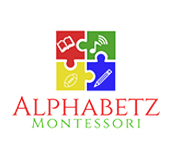In a world where childhood obesity and unhealthy eating habits are increasingly becoming concerns, the integration of nutritional education into early childhood learning is more important than ever. The Montessori philosophy, known for its holistic approach to education, offers a unique perspective on teaching nutrition. This blog explores how the Montessori method fosters healthy eating habits in children through its curriculum, environment, and practical activities.
The Montessori Approach to Nutrition
Montessori education is distinguished by its emphasis on independence, freedom within limits, and respect for a child’s natural psychological, physical, and social development. When it comes to nutrition, Montessori education incorporates this vital subject into its curriculum, emphasizing the importance of healthy eating from an early age.
In a Montessori setting, the role of the prepared environment is crucial in promoting choices that lead to a balanced diet. Children are encouraged to make food-related decisions, fostering a sense of autonomy and responsibility towards their eating habits. For example, snack times are self-directed, allowing children to choose from a variety of healthy options, thereby intuitively guiding them towards nutritious foods.
Montessori-Inspired Activities for Learning About Nutrition
Montessori-inspired activities are hands-on and designed to teach children about healthy eating in an engaging way. Preparing simple snacks, understanding food groups through interactive sorting activities, and gardening to learn where food comes from are just a few examples. These activities not only educate children about nutrition but also support their overall development, including fine motor skills and independence. By participating in these activities, children learn the value of healthy eating and gain practical skills that contribute to their lifelong well-being.
Aligning Home Nutrition Practices with Montessori Principles
For parents looking to extend Montessori principles to home nutrition practices, consistency is key. Involving children in food preparation at home reinforces their learning about nutrition and healthy habits. Tips for parents include creating a child-friendly kitchen space with accessible tools, offering choices within limits, and modeling healthy eating behaviors. This approach not only promotes nutritional education but also strengthens the child’s autonomy and decision-making skills in relation to their diet.
The Role of the Prepared Environment in Nutritional Choices
The design and organization of Montessori classrooms play a significant role in supporting healthy food choices. Child-sized kitchen tools, accessible healthy snacks, and a structured yet flexible routine encourage children to make independent nutritional decisions. The significance of autonomy and choice in the Montessori method is evident in how children learn to listen to their bodies and make informed food choices, leading to better nutritional decisions and a healthier lifestyle.
Montessori Materials and Lessons on Nutrition
Montessori materials and lessons on nutrition are designed to provide a comprehensive understanding of healthy foods and their benefits. Sorting activities with food pictures, using nomenclature cards related to food, and practical life exercises like cooking are integral parts of the curriculum. These materials and lessons foster a lifelong appreciation for nutritious eating by making learning about healthy foods engaging, practical, and relevant to everyday life.
In conclusion, the Montessori method’s holistic approach to education includes a strong emphasis on nutritional education. By incorporating nutrition into its curriculum, providing hands-on learning activities, and creating an environment that supports healthy choices, Montessori education fosters healthy eating habits in children. These habits not only contribute to their physical well-being but also to their overall development and independence. As we continue to face challenges related to nutrition and health, the Montessori philosophy offers valuable insights and practices that can help nourish young minds and bodies.

